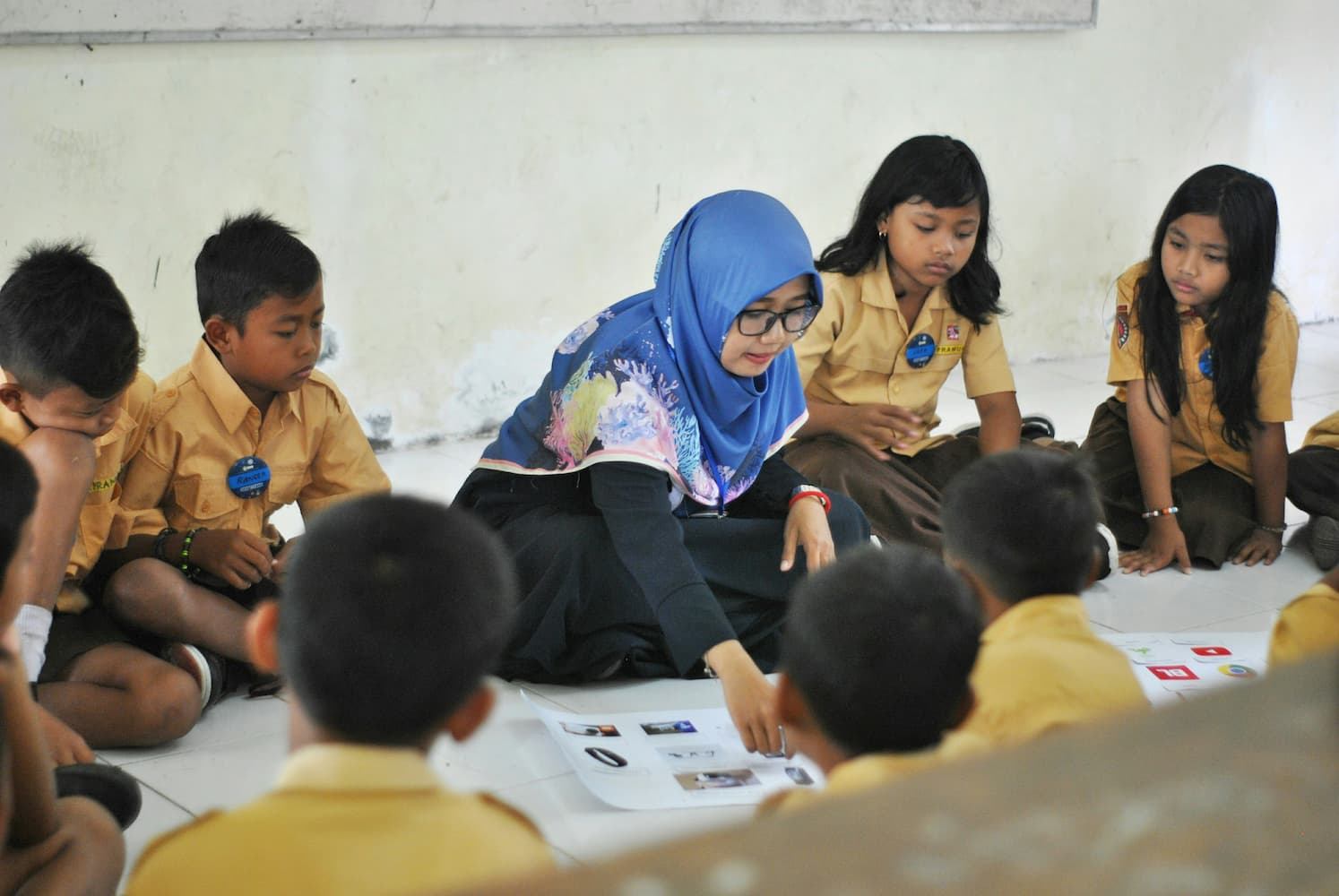Embeddedness in government systems at all levels
What Works Hub for Global Education Compendiums: Towards Efficient and Sustainable Solutions
Global education is at a crossroads. For decades, a learning crisis has persisted, with students unable to read or operate basic numbers. This has now been compounded by a fiscal crunch, with over $1 billion lost in development aid to education and many governments grappling with growing debt.
This situation necessitates a rethink. We need efficient and sustainable solutions to improve learning and to ensure scarce education funds are being used in the most effective way possible.
- By efficiency, we mean maintaining a laser-focus on effective, low-cost implementation.
- By sustainability, we mean doubling down on government partnerships and empowering local leaders.
This Compendium: Ensuring Sustainability through Embeddedness in Government Systems
To support our sector in achieving the sustainability goal of embeddedness in government systems at all levels, we’ve built a set of resources and examples on this topic, which you can browse below. To learn more, see our clarion call for efficient and sustainable solutions to achieve foundational learning.
If you would like to contribute to the compendium, please email wwhge.proposals@bsg.ox.ac.uk with your proposed contribution. All submissions will be reviewed by a committee prior to inclusion in the compendium. To learn more about submitting and other aspects of the Compendiums, see our Compendiums: Frequently Asked Questions page.
Resources
Understanding gaps between policy and practice
Noam Angrist and Stefan Dercon
This article presents new systematic analysis of the gap between education policy and practice across 50 countries during COVID-19, a time of substantial policy innovation.
Government-led reforms: How can we support the ‘missing middle’ to scale reading instruction?
Clio Dintilhac, Michelle Kaffenberger and Yue-Yi Hwa
The authors explore how to support the middle tier of the bureaucracy who are vital for sustaining and scaling effective reading and mathematics practices in the government system.
The path to scale: navigating the scaling of structured pedagogy programmes
Heather Leigh Kayton and Michelle Kaffenberger
This insight note explores some of the pathways taken when scaling structured pedagogy programmes within government education systems through the lens of the intellectual framework of the What Works Hub for Global Education.
Key findings from a series of studies on structured learning programmes in South Africa
Stephen Taylor, Nompumelelo Mohohlwane, Bianca Böhmer and Anna Murru
This report synthesises the findings from the implementation research of the Early Grade Research Programmes (EGRS) interventions launched by South Africa’s Department of Basic Education.
Counting on teachers: Lessons on scaling numeracy training for every teacher in Sierra Leone
Aliou Diallo, Marco Valenza, Thomas Dreesen, Paola Ripamonti and Cosnat Ntenje
This blog highlights a structured teaching training programme in Sierra Leone and how practice, creativity and leadership helped improve the instructional skills of the teachers.
Five lessons for scaling targeted instruction from implementation research in Ghana
Marco Valenza and Thomas Dreesen, UNICEF Innocenti, and Christin McConnell, UNICEF Ghana
This blog highlights five key lessons for implementing targeted instruction drawn from the Differentiated Learning Plus (DL+) experience, led by the Ghanaian Ministry of Education with support from UNICEF.
Pre-service teacher education – the linchpin for embedding sustainable, scalable change in education systems
Stephanie Simmons Zuilkowski and Adrienne Barnes-Story
The authors make a case for the formal pre-service teacher education (PSTE) system as the single most promising intervention point in an education system from a sustainability and scalability perspective.
Scaling Teacher Training for Structured Pedagogy: Lessons from Sierra Leone
Marco Valenza, Aliou Diallo, Thomas Dreesen, Cosnat Ntenje, and Chelsea Lavallee
The report analyses Sierra Leone’s nationwide rollout of structured-pedagogy teacher training—training over 12,500 Grade 1 teachers and headteachers—and assesses what worked, what didn’t, and how to sustain professional development at scale.
The Implementation Barrier: Unlocking Brazil’s Next Leap in Education Across Large-Scale Systems
Olavo Nogueira Filho
This policy brief explores what it would take for Brazil’s subnational education systems to overcome barriers to the implementation of systemic reforms.
Related content

A clarion call for efficient and sustainable solutions to achieve foundational learning
To improve learning with limited funds, global education needs resources on efficiency and sustainability. Read our call for contributions.

Compendiums
A collection of compendiums related to improving education outcomes.

High-fidelity implementation at low cost
Read resources about improving education initiatives’ efficiency through more cost-effective implementation.